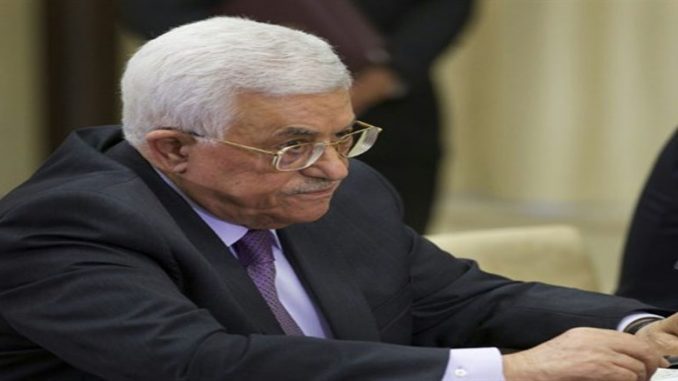
Palestinian President Mahmoud Abbas has accused fellow Fatah members of using a recent prisoner hunger strike to ‘conspire against him’ over the recent hunger strike of Palestinian prisoners.
Palestinian President Mahmoud Abbas has accused Fatah members of using the recent prisoner hunger strike to conspire against him, exploiting the recent hunger strike of Palestinian prisoners in Israeli prisons.
Abbas made the statements on Tuesday during a meeting of the Palestine Liberation Organisation’s [PLO] executive committee, sources have told the London-based The New Arab.
The sources, who spoke on the condition of anonymity, quoted Abbas as saying: “The strike was used to play an unpatriotic game by some member of Fatah and other groups.”
“I will not let those, inside or outside Fatah, who conspired against me to pass by,” Abbas added.
Abbas has been heavily criticised at home for a lack of enthusiastic support for the hunger strike with 60 percent of Palestinians accusing him of not doing enough.
For 41 days the Palestinian detainees refused food from Israeli prison authorities, taking just salt and water before they called off their strike declaring victory on Saturday.
Meeting with Trump ‘uncomfortable’
Speaking about his recent meeting in Bethlehem last week with Trump, the Palestinian leader reportedly admitted the encounter was “uncomfortable”.
Trump reportedly shouted at Abbas during their meeting, accusing him of deception over the PA’s involvement in anti-Israeli incitement.
The source said that Trump showed video clips, which had been taken out of context, of Abbas admitting to “inciting against Israel”.
“You have the CIA, ask them to examine the videos and to find out how they were taken or fabricated for the purpose of incriminating Palestinians,” Abbas reportedly told Trump.
The two held a joint press conference after their tense meeting, during which Abbas reiterated calls for a two-state solution to the conflict.
“We are ready to open dialogue with our Israeli neighbours to build confidence and create a real opportunity for peace,” Abbas said.
Trump initially sparked deep concern among Palestinians when he backed away from the long-established US commitment to a two-state solution to the conflict.
Meeting Netanyahu in Washington in February, he said he would support a single state if it led to peace, delighting Israeli right-wingers who want to see most of the West Bank annexed.
During his election campaign, Trump also advocated breaking with decades of precedent and moving the US embassy from Tel Aviv to Jerusalem, alarming Palestinians.
He has since said the move is being reviewed.



